Nuclear Talks Won’t Be Necessary If Not In Line With Iran’s Interests - Lawmaker
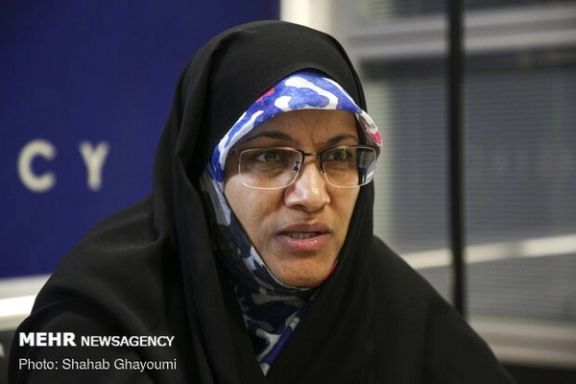
An Iranian lawmaker says if the talks to restore the 2015 nuclear deal do not continue in line with the country’s interests, they will not be necessary.

An Iranian lawmaker says if the talks to restore the 2015 nuclear deal do not continue in line with the country’s interests, they will not be necessary.
Member of parliament's National Security and Foreign Policy Committee Zohreh Elahian said on Wednesday that it is not the policy of the current administration to negotiate for the sake of negotiating.
She reiterated that “all sanctions must be lifted, and we must certainly obtain a credible guarantee from the United States so that we do not face another withdrawal from the agreement and the return of sanctions”.
She added that the Islamic Republic has not gotten any credible guarantee so far, and US President Joe Biden’s statement will not meet Iran’s criterion for concluding an agreement. Former US president Donald Trump unilaterally withdrew from the Obama-era Nuclear deal JCPOA and imposed sanctions on Iran.
Emphasizing that the parliament, the country's negotiating team and the Foreign Ministry are of the opinion that “an internal guarantee” must be obtained for the agreement, she explained that such a guarantee should be included in the agreement so if the other side reinstates sanctions or imposes new measures, Iran’s commitments to limit uranium enrichment will be cancelled.
Direct negotiations with the United States are not currently on Iran’s agenda, the MP said and added. “We are waiting for the decision by the American side, and if this process becomes attritional, a decision will be made whether or not to continue the negotiations”.
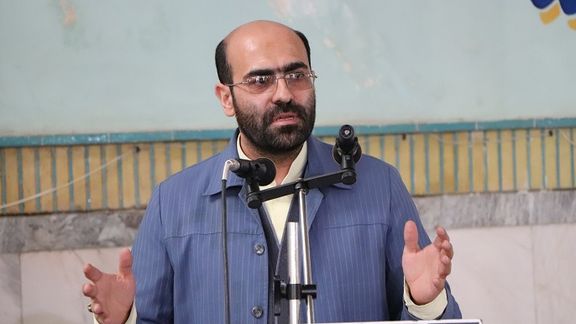
Iran's parliament intends to set up a tracking system to keep a tab on oil, natural gas and other hydrocarbon exports that are currently shrouded in secrecy.
Hadi Bayginejad, a member of the parliament’s energy committee spoke of the need for transparency for all hydrocarbon sales conducted under the umbrella of the National Iranian Oil Company (NIOC), which ultimately controls all explorations, distribution and exports.
Bayginejad was speaking to Iran’s Fars news agency affiliated with the Revolutionary Guard, the IRGC.
Since the United States withdrew from the Obama-era nuclear agreement with Iran, the Joint Comprehensive Plan of Action (JCPOA) and imposed oil export sanctions, Tehran has been shipping its crude and oil products using illicit methods. Details of its sales and shipping are considered state secret to prevent any retaliation against third parties by the US.
In the previous round of international sanctions between 2011-2015, Iran resorted to similar illicit methods, finding intermediaries and shady brokers to sell its oil on international markets. The practice led to large-scale corruption involving officials. In one case, a businessman, Babak Zanjani embezzled at least $2.7 billion and is now facing the death penalty in prison.
Bayginejad said the parliament’s energy commission lately held a series of meeting to find ways for making transactions transparent. This is of special importance he told Fars. He bemoaned that the parliament’s budget bill this year did include a table specifying domestic consumption quantities of hydrocarbons as a step toward tracking the whole sector. However, the Guardian Council that must approve all parliament decisions stroke down this part from the budget bill.
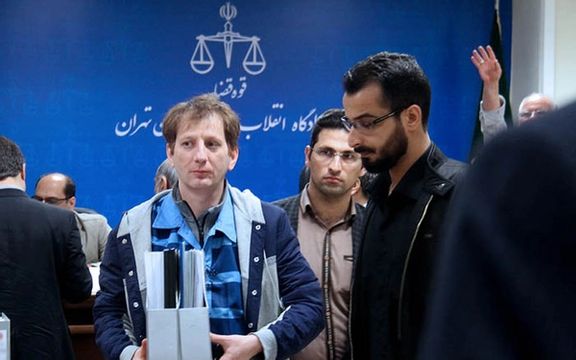
The lawmaker explained that more than 30 companies are involved in selling crude, natural gas and oil products on behalf of the national oil company. It should become clear what they do with the oil and gas they receive from the NIOC and where and to whom they sell it. “It is very important for parliament to find out the details of oil and gas sales and their revenues,” he emphasized, and added that energy committee will not relent on this issue.
Since conservative president Ebrahim Raisi took office last August with the blessing of Supreme Leader Ali Khamenei and the full support of the Revolutionary Guard, IRGC, the government and parliament have allocated large quantities of oil to the military to export and gain revenues. This means that transactions will remain a state secret, with the potential of corruption by the IRGC. Bayginejad, however, did not explain why parliamentallocated 3.5 billion euros of crude oil “to individuals” in March to sell on the world markets, with the assumption that the proceeds would go to the military.
Bayginejad is a conservative lawmaker close to the Paydari front, which is a large faction in parliament, espousing more ‘revolutionary’ positions, including intermittent campaigns against ingrained corruption among officials.
He told Fars that people have a right to know which countries are buying Iran’s oil and how much are the revenues. The government insists that with less enforcement by the Biden administration it has been able to export more oil in the past tear and it revenues are up by almost 50 percent.
Bayginejad emphasized that it is also important for the parliament and the public to know how much oil is handed out to all the intermediary companies and what is their revenue.
He added, “Transparency leading to economic development and progress is important when it occurs in the financial affairs of the country.”
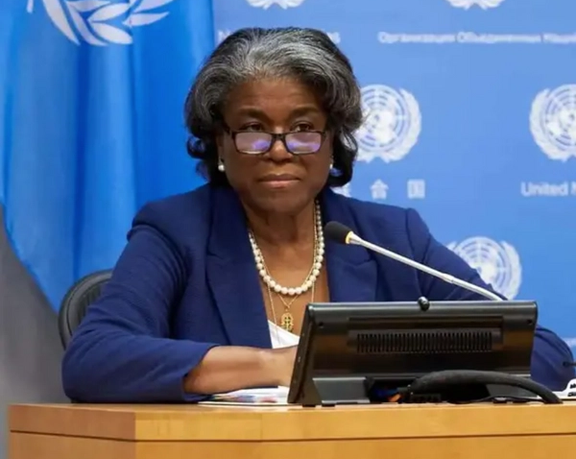
The US envoy to the United Nations says if diplomacy fails and the nuclear deal cannot be restored with Iran, the international community will increase pressure on the Islamic Republic.
At a press conference Ambassador Linda Thomas-Greenfield said on Tuesday that “there’s still a lot more work to be done [on the JCOPA], we don’t have an agreement just yet, and it’s possible we might not get there”. The US is set to take the rotational presidency of the Security Council later this month.
She noted that “if diplomacy does not succeed, then we’ll continue to work very closely with others in the international community to increase the pressure on Iran”.
Thomas-Greenfield stated that some substantial progress has been made in resolving a significant number of the issues necessary for the US to come back into the deal on a compliance-for-compliance basis, and “we’re continuing to work on that effort, and we’ll see where it leads”.
She said president Joe Biden made a solemn commitment that Iran must not be allowed to acquire a nuclear weapon, but he also made a commitment that he was prepared to go back into the deal, or the Joint Comprehensive Plan of Action.
Iran’s foreign minister said earlier on Tuesday that Washington “must correct Trump's illegal behavior with a realistic approach” and take a political step to reach a nuclear agreement, insisting that Tehran and Washington are still exchanging messages through the European Union despite the halt in Vienna talks.
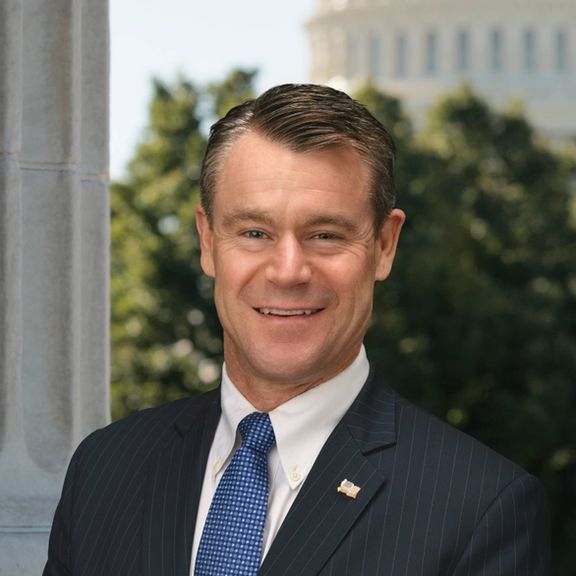
Republican Senator Todd Young has told Iran International that even if the Biden administration manages to restore the nuclear deal with Iran, it will only last until the next president takes office.
“If a deal is cut with this terrorist regime, I want the regime to know that it's highly unlikely that that deal would be honored by a future administration”, he told Iran International’s correspondent Arash Alaei.
He also criticized the current negotiations between Tehran and Washington, saying that “the Iranians refused to back down in their unlawful activities and in their terrorist policies”.
Young also called on Iran’s Supreme Leader Ali Khamenei “to change his activities, particularly his resourcing of terrorists, which has led to the deaths of hundreds of Americans, his continued engagement in unlawful nuclear activities, and his stubborn desire to develop more sophisticated missile technology that can export this regime's terror strategy to even further geographies”.
Iran's foreign minister stressed on Tuesday that Tehran and Washington are still exchanging messages through the European Union despite the halt in Vienna talks.
On Monday, the United States reiterated that it still believes a return to the 2015 Iran nuclear deal (JCPOA) is in its interest, and it continues to pursue the diplomatic path.
Opposition among US lawmakers to a deal restoring JCPOA has gorwn in the past two months.
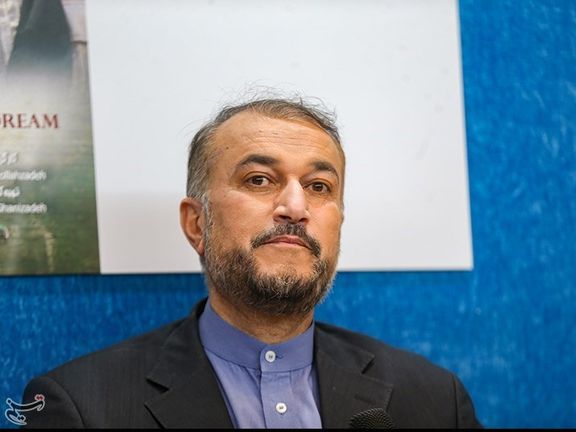
Iran’s foreign minister told his Irish counterpart Tuesday, that Washington “must correct Trump's illegal behavior with a realistic approach” and take a political step to reach a nuclear agreement.
Talks in Vienna to restore the 2015 nuclear deal, Joint Comprehensive Plan of Action (JCPOA), have been in limbo since mid-March when Iran insisted that its Revolutionary Guard (IRGC) be removed from the US list of terrorist organizations. The US has not agreed to the demand.
Former US president Donald Trump withdrew from, JCPOA, and imposed heavy sanctions on Iran.
Earlier, Amir-Abdollahian had said negotiations on restoring the 2015 Iran deal have not been paused, noting that Tehran and Washington are in indirect correspondence.
He told Yemen’s Almasirah television network on Tuesday, “The Vienna talks have not been paused, but they continue in another process to remove the unilateral sanctions imposed on us and through the exchange of written messages with the Americans through the EU representative”.
Reiterating that “Removing sanctions in all areas and receiving economic guarantees are among the most important items on our negotiating team’s agenda”, he added that Tehran’s objective in the talks is to reach a “strong” and “permanent” agreement.
Enrique Mora, the senior EU official chairing the Vienna process, has told Iranian negotiators he is ready to return to Tehran to open a pathway through the deadlock, diplomats told the Wall Street Journal. Mora failed to convince Tehran to return to the talks during his March 27 visit.
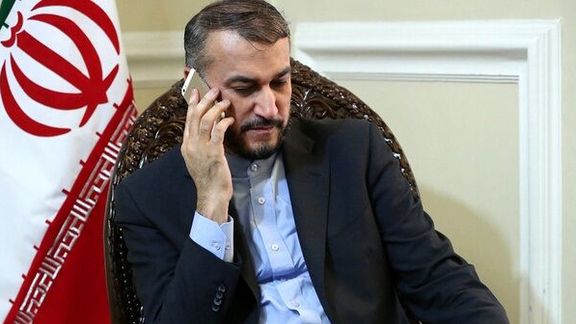
Iran's foreign minister Tuesday stressed that Tehran and Washington are still exchanging messages through the European Union despite the halt in Vienna talks.
Negotiations to revive the 2015 nuclear agreement, JCPOA, have not stopped but continue at another pace through the exchange of written messages with the Americans through the European Union representative with the aim of lifting US sanction on Iran, Hossein Amir-Abdollahian told Beirut-based Yemeni Almasirah television on Tuesday.
“We urged the American side to be realistic,” Amir-Abdollahian said. “Removing sanctions in all areas and receiving economic guarantees are among the most important items on our negotiating team’s agenda,' the Iranian foreign minister said.
The US State Department Spokesman Ned Price also said Monday that that the EU coordinator of the talks, Enrique Mora, continues to convey messages back and forth between Tehran and Washington. Price, however, declined to comment on whether Tehran has accepted a reported offer by Mora to go to Tehran to break the deadlock in the talks.
"The main issue is the relations between Iran and the US, not the role that Europe can play in the talks … Europe's role is one of a go between. The go between can play a limited role and will not have an effective and decisive role in any negotiations," Nader Entesar, professor of political sciences at South Alabama University told the Iranian Labour News Agency (ILNA) on Tuesday.
In what highlighted the Biden administration’s commitment to revive the JCPOA, Secretary of State Antony Blinken said Monday that the United States will not stand in the way of Russia-Iran nuclear cooperation if the JCPOA is restored.
Iran currently has one Russian-built nuclear power plant and a $10 billion contract with Moscow to build two further power plants in Bushehr.
Opponents of reviving the JCPOA argue that one of the problems with the Vienna talks so far is that Russia is set to benefit $10 billion while it is being sanctioned for its invasion of Ukraine.
Another issue is Tehran’s demand for its Revolutionary Guard to be removed from the US list of terrorist organization. The Iranian foreign minister made no mention of the demand, which currently appears to be the most important hurdle to signing off on a deal to but said the Americans have "perfectly understood Iran's red lines".
US State Department spokesman Ned Price reiterated on Monday that Tehran will have to make concessions on some issues if they want to put demands on the table that are outside the confines of the JCPOA. “That’s just the very nature of any negotiation,” he said in a veiled reference to the IRGC designation.
Price told reporters Monday that the Biden administration will continue dialogue with Tehran via its partners, including the European Union, to achieve a mutual return to compliance with the JCPOA for as long as a mutual return to compliance would be in US interests.
"If and when we reached the point where the non-proliferation benefits of a mutual return to compliance with the JCPOA would not overcome the progress that Iran has achieved in its nuclear program in the past three or so years, that’s when we’ll reassess and pursue an alternative course," he said.
US Department of Defense Spokesman John Kirby on Monday told reporters that the Pentagon backs the government's efforts to revive the JCPOA and prevent Iran from building nuclear weapons. "No problem in the Middle East is easier to solve with Iran having a nuclear weapon," he said, adding that even during negotiations, Iran has continued to develop "certain nuclear capabilities", apparently a reference to Iran's enrichment of uranium to 60 percent purity which has brought it closer to 90 percent purity required for building nukes.